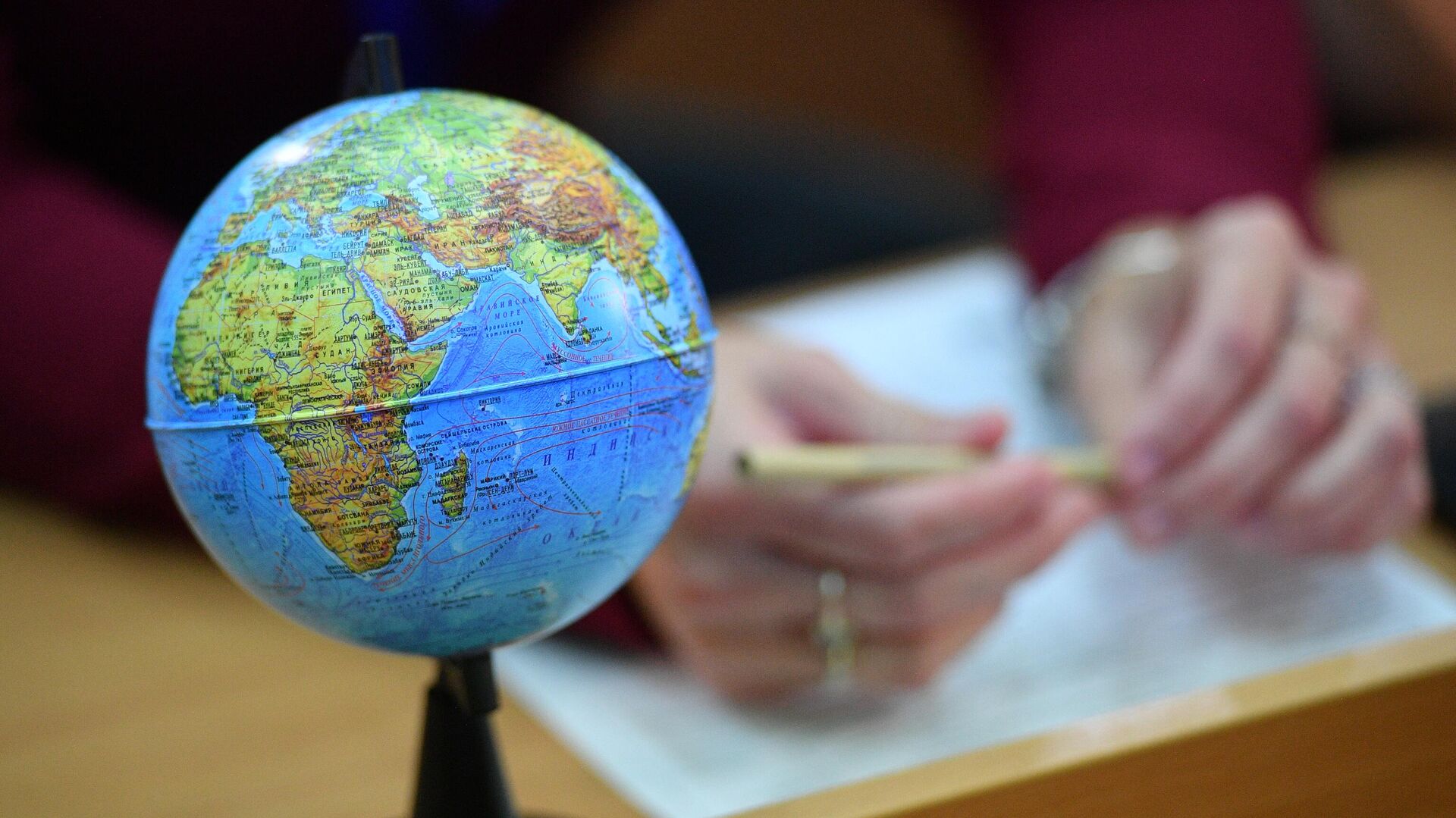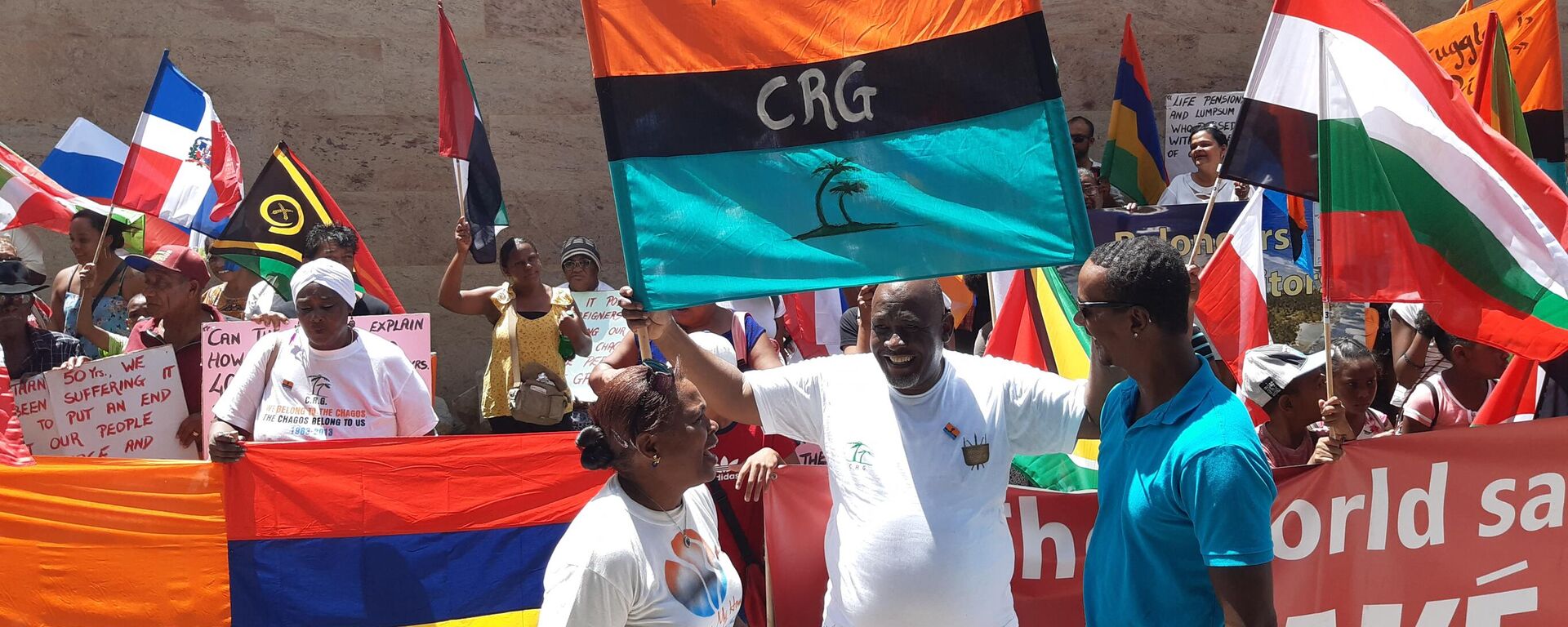https://en.sputniknews.africa/20230526/ongoing-struggle-for-self-determination-international-week-of-non-self-governing-territories-1059491938.html
Ongoing Struggle for Self-Determination: International Week of Non-Self-Governing Territories
Ongoing Struggle for Self-Determination: International Week of Non-Self-Governing Territories
Sputnik Africa
Every year, from May 25 to 31, the world observes the International Week of Solidarity with the Peoples of Non-Self-Governing Territories. This week serves as a reminder of their ongoing struggle for self-determination.
2023-05-26T15:03+0200
2023-05-26T15:03+0200
2025-01-04T09:22+0100
united nations (un)
non-self-governing territories
united kingdom (uk)
united states (us)
france
new zealand
western sahara
international
the falkland islands
north america
https://cdn1.img.sputniknews.africa/img/07e6/0c/0f/1057282731_0:0:3069:1726_1920x0_80_0_0_f3d2e3ac09d3567c1a5af4e8c613dbf7.jpg
The United Nations General Assembly established the International Week of Solidarity with the Peoples of Non-Self-Governing Territories on December 6, 1999. Its annual observance is intended to raise awareness of the plight of such territories and to demonstrate supportive solidarity with their peoples.Non-Self-Governing Territories are those whose peoples have not yet achieved full self-government, as defined by the United Nations. In 1946, a number of UN member states identified a number of territories under their jurisdiction that were not self-governing and added them to a UN list. The administering powers, by far the majority, oversee the Non-Self-Governing Territories. Over the years, most territories have been removed from the list through the process of decolonization, although several remain and are struggling to achieve self-government.According to the United Nations, there are currently 17 Non-Self-Governing Territories in the world, including one in Africa. These territories are listed below by region: As we can see from the list, most of the world's current 17 Non-Self-Governing Territories are administered by former Western colonial powers, including the United Kingdom (10 territories), the United States (3 territories), and France (2 territories).Importance of Non-Self-Governing Territories WeekThe United Nations General Assembly passed a resolution 54/91 in December 199 urging all Member States to provide moral and material aid to the inhabitants of Non-Self-Governing Territories, both through their direct efforts and through their activities in the United Nations specialized agencies and other organizations. The General Assembly also called for the annual observance of the Week of Solidarity with Non-Self-Governing Territories.The week is important because it serves as a reminder that the struggle for self-determination and self-government is far from over. Many territories around the world are still fighting for their right to govern themselves and determine their own future.During this week, events and activities are held to raise awareness about the situation in Non-Self-Governing Territories and to show support for their peoples. It is a time for reflection and action, as we consider what we can do to help these territories achieve their goals.According to Chapter XI of the UN Charter, also known as the Declaration on Non-Self-Governing Territories, Member States administering territories that have not yet achieved self-government must recognize that the welfare and interests of the inhabitants of these territories are a primary concern and a "sacred trust".Those with administrative authority are also required to report regularly to the UN Secretary-General on the economic, social and educational status of the territories they administer. They are also strongly encouraged to take measures to protect and uphold the inherent rights of the people who inhabit these territories.
https://en.sputniknews.africa/20230220/1058620159.html
non-self-governing territories
united kingdom (uk)
united states (us)
france
new zealand
western sahara
the falkland islands
north america
europe
Sputnik Africa
feedback@sputniknews.com
+74956456601
MIA „Rossiya Segodnya“
2023
Muhammad Nooh Osman
https://cdn1.img.sputniknews.africa/img/07e7/04/0a/1058467512_0:0:1280:1280_100x100_80_0_0_ec723833bcbfcaed2e21952965ad99e4.jpg
Muhammad Nooh Osman
https://cdn1.img.sputniknews.africa/img/07e7/04/0a/1058467512_0:0:1280:1280_100x100_80_0_0_ec723833bcbfcaed2e21952965ad99e4.jpg
News
en_EN
Sputnik Africa
feedback@sputniknews.com
+74956456601
MIA „Rossiya Segodnya“
Sputnik Africa
feedback@sputniknews.com
+74956456601
MIA „Rossiya Segodnya“
Muhammad Nooh Osman
https://cdn1.img.sputniknews.africa/img/07e7/04/0a/1058467512_0:0:1280:1280_100x100_80_0_0_ec723833bcbfcaed2e21952965ad99e4.jpg
international week of non-self-governing territories, ongoing struggle for independence, non-self-governing territories, what is a non-self-governing territory? , which countries are not self-governing? , how many non-self-governing territories are there in the world? , how many non-self-governing territories are there in africa? , non-self-governing territories: a sacred trust, international week of non-self-governing territories,
international week of non-self-governing territories, ongoing struggle for independence, non-self-governing territories, what is a non-self-governing territory? , which countries are not self-governing? , how many non-self-governing territories are there in the world? , how many non-self-governing territories are there in africa? , non-self-governing territories: a sacred trust, international week of non-self-governing territories,
Ongoing Struggle for Self-Determination: International Week of Non-Self-Governing Territories
15:03 26.05.2023 (Updated: 09:22 04.01.2025) Muhammad Nooh Osman
Writer/Editor
Every year, from May 25 to 31, the world observes the International Week of Solidarity with the Peoples of Non-Self-Governing Territories. This week serves as a reminder of the ongoing struggle for self-determination and self-government faced by many territories around the world.
The United Nations General Assembly established the International Week of Solidarity with the Peoples of Non-Self-Governing Territories on December 6, 1999. Its annual observance is intended to raise awareness of the plight of such territories and to demonstrate supportive solidarity with their peoples.
Non-Self-Governing Territories are those whose peoples have not yet achieved full self-government, as defined by the United Nations. In 1946, a number of UN member states identified a number of territories under their jurisdiction that were not self-governing and added them to a UN list.
The administering powers, by far the majority, oversee the Non-Self-Governing Territories. Over the years, most territories have been removed from the list through the process of decolonization, although several remain and are struggling to
achieve self-government.
According to the United Nations, there are currently 17 Non-Self-Governing Territories in the world, including one in Africa. These territories are listed below by region:
Africa: Western Sahara (Since 1963)
Atlantic and Caribbean: Anguilla (United Kingdom), Bermuda (United Kingdom), British Virgin Islands (United Kingdom), Cayman Islands (United Kingdom), Falkland Islands (Malvinas) (United Kingdom), Montserrat (United Kingdom), Saint Helena (United Kingdom), Turks and Caicos Islands (United Kingdom), United States Virgin Islands (United States)
Europe: Gibraltar (United Kingdom)
Pacific: American Samoa (United States), French Polynesia (France), Guam (United States), New Caledonia (France), Pitcairn (United Kingdom), Tokelau (New Zealand)
As we can see from the list, most of the world's current 17 Non-Self-Governing Territories
are administered by former Western colonial powers, including the United Kingdom (10 territories), the United States (3 territories), and France (2 territories).
Importance of Non-Self-Governing Territories Week
The United Nations General Assembly passed a resolution 54/91 in December 199 urging all Member States to
provide moral and material aid to the inhabitants of Non-Self-Governing Territories, both through their direct efforts and through their activities in the United Nations specialized agencies and other organizations. The General Assembly also called for the annual observance of the Week of Solidarity with Non-Self-Governing Territories.
The week is important because it serves as a reminder that the struggle for self-determination and self-government is far from over. Many territories around the world are still fighting for their right to govern themselves and determine their own future.
During this week, events and activities are held to raise awareness about the situation in Non-Self-Governing Territories and to show support for their peoples. It is a time for reflection and action, as we consider what we can do to help these territories achieve their goals.
According to Chapter XI of the UN Charter, also known as the Declaration on Non-Self-Governing Territories, Member States administering territories that
have not yet achieved self-government must recognize that the welfare and interests of the inhabitants of these territories are a primary concern and a "sacred trust".
Those with administrative authority are also required to report regularly to the UN Secretary-General on the economic, social and educational status of the territories they administer. They are also strongly encouraged to take measures to protect and uphold the inherent rights of the people who inhabit these territories.



